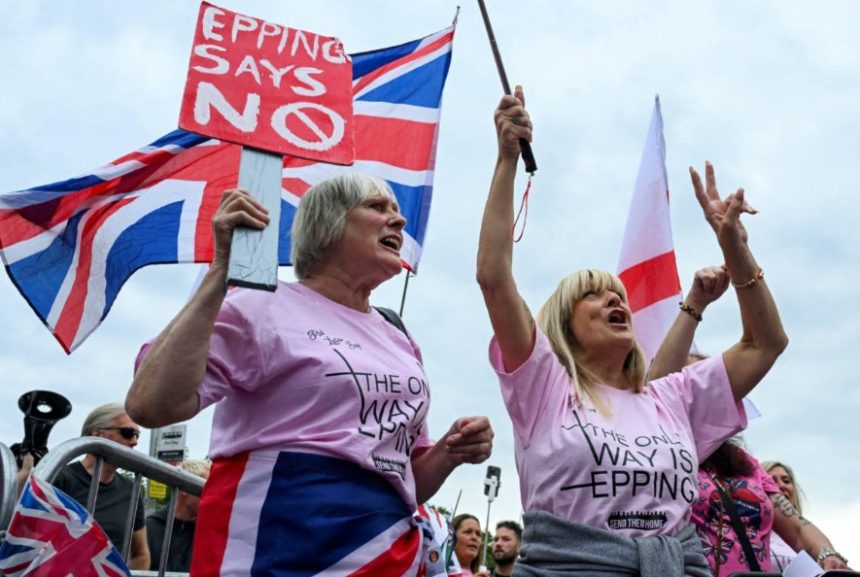UK Anti-Migrant Protests Intensify as Labour Sets Out Asylum Overhaul
Anti-migrant protests swept across Britain again this weekend, highlighting the deep divisions over immigration as Sir Keir Starmer’s Labour government attempts to push through reforms of the asylum system.
Protests outside hotels
Sunday saw demonstrators gather outside hotels in Epping, Bristol, and Birmingham, echoing scenes that have become a regular feature in recent weeks. Crowds waved Union flags and brandished placards reading “Epping says no” and “Stop the boats.”
UK anti-migrant protests continue after government sets out asylum reforms https://t.co/tPy00LiLWl pic.twitter.com/hOaoOGX2Yd
— Alma Angeles (@AlmaANET25) August 25, 2025
The demonstrations followed Saturday’s wave of smaller rallies in towns and cities across England, Scotland, and Wales, where police had stepped in to separate protesters from counter-groups.
Rising tension
The protests have been fuelled by growing concern over public safety and record levels of asylum claims. Figures released last week showed more migrants than ever are being accommodated in hotels, despite the Labour government’s pledge to phase out such costly arrangements.
Epping has become a flashpoint. A recent court ruling ordered asylum seekers to be removed from a local hotel, though ministers confirmed they will appeal.
Political fault lines
Immigration remains Britain’s most pressing issue, according to polling, and political pressure is mounting. Reform UK leader Nigel Farage, whose party has surged in recent surveys, told The Times he would pursue “mass deportations” of those arriving by small boats if elected.
He pledged to pull Britain out of the European Convention on Human Rights, negotiate repatriation deals with countries such as Afghanistan and Eritrea, and build secure holding facilities for up to 24,000 migrants.
Labour’s counter-move
The government hit back on Sunday with its own blueprint for reform. Ministers unveiled plans to overhaul the asylum appeals system, tackling a backlog of more than 106,000 cases.
The changes include creating a new panel of independent adjudicators to cut waiting times—many of which currently stretch beyond a year.
Home Secretary Yvette Cooper defended the proposals, stressing the need for urgent action. “We cannot carry on with these completely unacceptable delays,” she said, adding the reforms were designed to “restore control and order” to a system she described as “in complete chaos” when Labour took power last year.
What lies ahead
With immigration now dominating the political agenda, the clash between grassroots anger, Reform UK’s hard-line stance, and Labour’s attempt at pragmatic reform shows no sign of easing.
The protests may be localised, but the mood they reflect has become a national fault line—and one that could shape Britain’s political landscape for years.






